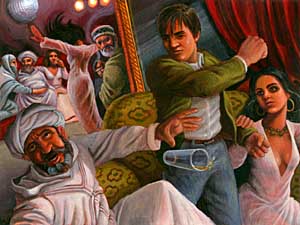
| By Admin1 (admin) on Tuesday, April 30, 2002 - 1:55 pm: Edit Post |
"Save me, wild qahba"


| By Anonymous (cpe-071-070-175-114.nc.res.rr.com - 71.70.175.114) on Wednesday, April 19, 2006 - 10:43 pm: Edit Post |
I've been to Morocco and had no idea they had such underground places!